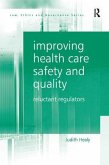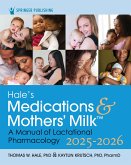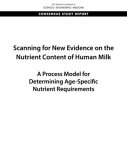Communicating the nature and consequences of environmental and health risks is still one of the most problematic areas of public policy in Western democracies. Mad Cows and Mother's Milk outlines the crucial role of risk management in dealing with public controversies and analyses risk communication practice and malpractice to provide a set of lessons for risk managers and communicators. This second edition adds new case studies on mad cow disease in North America, climate change, and genetics technologies. The first of the new case studies brings the story of the Bovine Spongiform Encephalopathy (BSE) outbreak in the United Kingdom in the 1980s up-to-date. BSE has now been discovered on the North American continent in two cows born in Canada. The original cause of these two new cases is almost certainly importation of infected cattle, cattle feed, or both from Britain. Canadian government regulators and those in the cattle industry have failed to correctly assess the risks of the disease in the Canadian herd, take the precautionary measures needed to prevent the spread of disease, and communicate risks and precautionary measures to the public. The second new study deals with global warming. Not only is every aspect of this risk debate both contentious and difficult for the public to understand but the potential consequences of the risks extend all the way to global catastrophe for human civilization. A new chapter outlines the many dimensions of risk debate in the context of the need for effective and sustained dialogue by an informed public. The last new case study provides an introduction to genomic science, which is placed in the context of both the health benefits expected fromgenetic manipulation and some of the risk factors associated with it. This new chapter suggests that we must think about the range of new risks introduced by these technologies as well as the potential benefits - and that we should do this collective thinking soon, since, give
Bitte wählen Sie Ihr Anliegen aus.
Rechnungen
Retourenschein anfordern
Bestellstatus
Storno



![Milk and the Public Health [electronic Resource] Milk and the Public Health [electronic Resource]](https://bilder.buecher.de/produkte/65/65552/65552993m.jpg)



